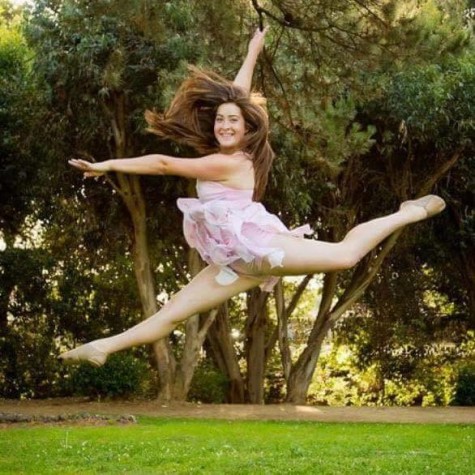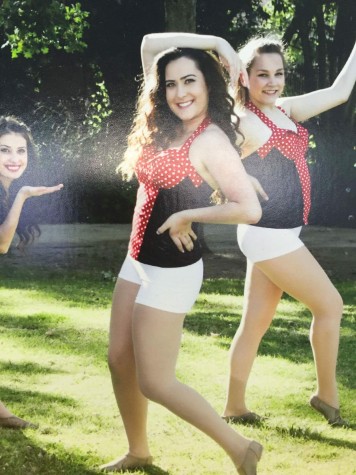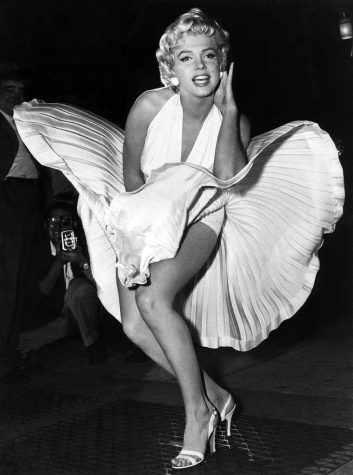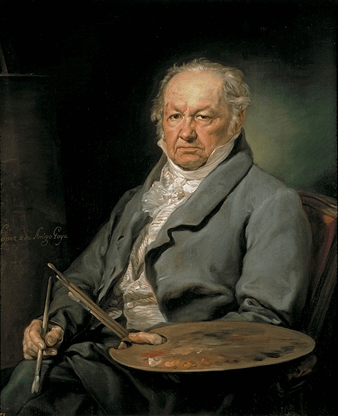January Artist of the Month: Stephanie Cohen
 Stephanie Cohen lives and breathes dance. Cohen started dancing when she was about five years old and stopped for a short while due to softball’s demanding schedule and time restraints.She spends a grueling three hours from Monday to Thursday and two hours on Saturday dancing in Vision Dance & Pilates Center, excluding professional workshops and time she practices on her own. However, her love for dance drove her right back to the studio, and she has been continuously dancing since the sixth grade.
Stephanie Cohen lives and breathes dance. Cohen started dancing when she was about five years old and stopped for a short while due to softball’s demanding schedule and time restraints.She spends a grueling three hours from Monday to Thursday and two hours on Saturday dancing in Vision Dance & Pilates Center, excluding professional workshops and time she practices on her own. However, her love for dance drove her right back to the studio, and she has been continuously dancing since the sixth grade.
One of the factors that pushed Cohen to pursue her passion was the media’s portrayal of dance: “When I was younger, Step Up’s incorporation of hip hop made me want to nail that style of dance down. This led to me wanting to learn more technical moves, so I also went on to learn ballet and jazz.” But it is not only her passion that drove her to learn the latter two forms –Cohen explains that in the modern world of dance, competition has become so cutthroat that it is necessary to master an array of dance styles to remain in the spotlight.
Cohen stretches herself across all areas of dance. She studies anything “from hip hop, ballet, and jazz, but contemporary is my favorite,” Cohen confesses. Her style, “ incorporates hard-hitting movements, and truly focuses on telling a story. I can really show my emotion through that type of dance because of that aspect.”
The ability of a dancer to demonstrate emotions through their art is the very reason why Cohen’s passion has grown tremendously, in contrast to other sports. “In softball, I could only show my dedication and hard work, but in dance, I am able to show my feelings.” Dance provides a more expressive outlet for Cohen, which eventually culminated to a decision to continue dancing in college. “I wanted to do professional dancing, but it’s very competitive. However, I will try out for college dance teams, and I’m minoring in dance as well,” she elaborated.
 Despite her modesty, Cohen is more than equipped to handle the competitive nature of dance. She has taken several professional workshops, including a few from Jaci Royal, who’s a famous choreographer from So You Think You Can Dance. Cohen explained it was a very intensive training, but the critique she received from Royal has greatly improved her technique. Cohen has also participated in Master Classes, which are designed to be extremely intense to refine a dancer’s technique. She attends conventions where she dances for six hours a day and auditions at random times throughout the workshop. At some time during the day, dancers must “audition” for a spot and present one dance out of many that they learned in forty minutes. Cohen adds that, “It’s hard, but you have to fake it to make it. They [the recruiters] don’t know that you were dancing all day, but you still have to make the dance look effortless and flawless.”
Despite her modesty, Cohen is more than equipped to handle the competitive nature of dance. She has taken several professional workshops, including a few from Jaci Royal, who’s a famous choreographer from So You Think You Can Dance. Cohen explained it was a very intensive training, but the critique she received from Royal has greatly improved her technique. Cohen has also participated in Master Classes, which are designed to be extremely intense to refine a dancer’s technique. She attends conventions where she dances for six hours a day and auditions at random times throughout the workshop. At some time during the day, dancers must “audition” for a spot and present one dance out of many that they learned in forty minutes. Cohen adds that, “It’s hard, but you have to fake it to make it. They [the recruiters] don’t know that you were dancing all day, but you still have to make the dance look effortless and flawless.”
When asked what runs through her mind as she dances, Cohen paused and replied with “Nothing. When I’m dancing, all of my problems disappear and the only thing I think about is what’s the next count, what’s the next move.” As her worries melt away, Cohen feels like she can physically release any pent up tension or emotions that have accumulated throughout the day.
As Cohen went into detail about her many injuries, I questioned why she keeps dancing through her incessant fractures and nagging pain. She smiled, “It’s totally worth it in the end. When you’re with your team and holding each other’s hands, anxiously waiting for the final results to be called, it’s worth it to hear your name. It’s that glory at the end of the day.”
As for advice Cohen has for aspiring dancers, she refers to her dance teacher’s motto, “Hard work beats talent if talent doesn’t work hard.” She concludes with “work hard, because it does not come easy.”





